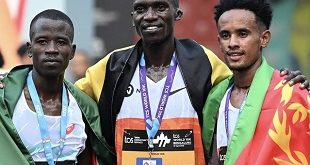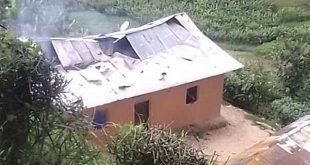
Kampala, Uganda | THE INDEPENDENT | Civil society actors are operating in uncertainty of their future as the deadline for the Democratic Governance Facility-DGF to wind down its operations in Uganda draws closer.
The facility, a pool of funds from different international donors is the major funder of over 60 Non-Governmental Organisations-NGOs, local governments, and agencies, whose operations seek to among others promote the rule of law, human rights, good governance, conduct civic education and provide free legal aid services.
Last year, President Yoweri Museveni ordered the suspension of the facility, which he accused of operating in a vacuum without government participation. The suspension sent shockwaves among several civil society players whose activities and survival entirely or largely depended on funding from DGF. Negotiations ensued between the government and DGF to come to an amicable solution.
In June this year, President Yoweri Museveni announced that he had lifted the ban on DGF until December 2022, but with the government represented in the facility’s decision-making. The announcement followed a meeting between the president and the Danish Minister for Development Cooperation, Flemming Miller Mortensen.
As December nears, there is no indication that DGF shall continue its operations in Uganda. Speaking at the sideline of a conference for Civil Society Organizations at Golf Course Hotel in Kampala, Robert Kirenga, the Executive Director of the National Coalition of Human Rights Defenders, says that if DGF is not allowed to extend its operations in Uganda, many people will be affected, including those who cannot afford to purchase legal aid services and speak up on different injustices against them.
Kirenga says that through funding by DGF, the civil society and government have improved service delivery in the education, health, and judicial sectors something that should not be lost. He asked the government to improve its relationship with civil society so that they can work together to deliver a better Uganda.
Sylvia Namubiru, the Executive Director of the Legal Aid Service Provider’s Network-LASPNET, says that thousands of people risk losing their jobs if the DGF closes its operations in Uganda. Namubiru says that usually, by this time as the end of the five-year DGF project nears, the facility calls for proposals from different players but this time, they haven’t called for any. This has triggered panic among civil society organizations casting doubt if DGF shall extend its stay.
Through funding CSOs, DGF has aided hundreds of people to access legal representation who cannot afford it. Namubiru says that LASPNET may not be able to continue with the service without DGF.
The relationship between the state and the civil society in Uganda has been a hate and love relationship. Civil society players say government acts with a lot of suspicions because of the advocacy they do in different fields especially good governance and human rights.
Namubiru says that this suspicious character has resulted in the closure of NGOs without clear reason, the lack of conclusive reports on evasions of their offices, and the blockage of funding to Civil Society organizations. Namubiru says that the government should not take civil society actors as enemies but rather partners who merely complement them in delivering services to the people.
Arthur Larok, the interim Secretary General of Action Aid International, says that many Civil Society organizations risk downscaling their operations with the closing of funding from DGF. Larok says that there is no other pool of funding like DGF to fund activities of several civil society organizations and yet many depended solely on its finances.
Speaking at the conference, the Minister for Justice and Constitutional Affairs, Nobert Mao reassured the Civil Society players that his ministry shall strive for a better environment for them to operate. He acknowledged the prejudices from the state that could affect the operations of the Civil Society but also asked them to address the prejudices within the Civil Society so as to smoothen their relationship with the state and the public.
Mao encouraged civil society to continue its work and resist any unhealthy friction, which is not based on ideas even if expressed by the government. He says that there shall always be friction between the state and civil society but such should be based on ideas rather than the power of force.
At the same event, Mao reassured the mother of jailed Kawempe North Member of Parliament-MP Muhammad Segirinya that her son shall receive justice. Segirinya was arrested together with his Makindye West counterpart, Allan Ssewanyana and others in relation to the machete killings in Masaka last year.
His mother, Justine Nakajumba, who has been pleading with the government to set Segirinya free was at Mao’s office on Monday to plead with him over his son’s freedom. She was however asked to return Tuesday since the Minister was at the time out of office.
Segirinya’s mother is worried that her son might die in prison, saying that he has hypertension and is not receiving the necessary medical attention from prison services.
The Democratic Governance Facility (DGF) was established in 2011 by the European Union, United Kingdom, Denmark, Ireland, Austria, Sweden, the Netherlands, and Norway to provide financial and technical support to both state and non-state actors in areas such as democracy, human rights, and rule of law.
In its second phase which commenced in 2017, DGF II had a budget of 102 million Euros which irked Museveni. The money was contributed by the European Development Fund (EDF) 12 million Euros, Austria 2.5 million Euros, Denmark 20 million Euros, Ireland 14 million Euros, the Netherlands 10 million Euros, Norway 10 million Euros, and Sweden 25 million Euros. It also had 8 million Euros carried forward from DGF I.
*****
URN
 The Independent Uganda: You get the Truth we Pay the Price
The Independent Uganda: You get the Truth we Pay the Price



